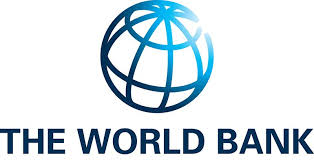
With COVID-19 pandemic effects projected to throw up en estimated 150 million additional poor people globally by 2021, the World Bank said it will provide over $50 billion grants to countries by June of the year.
In a remark at the G20 finance ministers and central bank governors on Wednesday, World Bank President, David Malpass said latest economic and poverty data show that desperate inequality was being caused by the COVID-19 pandemic and economic shutdowns.

“Extreme poverty may rise by 150 million by 2021.
“As part of this effort, we expect to provide over $50 billion in grants or highly concessional credits by June 2021, helping provide large net positive flows to the poorest and most fragile countries and people.”

He noted that soon after the 2020 spring meetings, World Bank launched health emergency programs in 111 countries and begin a surge in its grants and highly concessional lending that will reach the limits of our capital structure and commitment authority.
Also in March, the G20 endorsed a vital debt relief program for the poorest countries, giving people a ray of hope.
“The DSSI helped increase fiscal resources for over 40 countries and created more transparency on the overwhelming debt burden.
“Our goals for debt relief in the Spring meetings were clear – fiscal savings for the poorest countries, greater debt transparency, and a path forward for countries in debt distress.
“We’re making progress but not nearly enough.
Minister of Finance, Zainab Ahmed disclosed in Tuesday said the DSSI was problematic for Nigeria hence, Nigeria would not take advantage of it.
Malpass said “some core DSSI-related problems are still unresolved, notably a lack of participation by private creditors and incomplete participation by some official bilateral creditors.
“The bigger challenge is the need to look beyond DSSI. It’s important to note that the DSSI defers payments into the future but doesn’t reduce them.
“Interest charges compound quickly on the deferred amounts, leaving countries with even more debt.
“The DSSI has been a stopgap to provide fiscal resources and greater transparency while a longer-term solution for the debt crisis can be developed.
“The tendency in past debt crises is for countries in debt distress to go through a series of ineffective debt reschedulings that leaves them weaker.
“Creditors may eventually allow them to get to a debt reduction process, but at a tremendous cost to the poor. We need to work better and faster this time.
“While there’s been G20 discussion of a common framework on debt treatment, it’s important that it not just kick the can.”
He explained that given the urgency of the debt crisis, the IMF and World Bank have proposed to undertake a joint action plan on debt reduction for the most indebted IDA countries.
“On a positive note, I’m happy to announce that yesterday afternoon, our Board approved a package of up to $12 billion to expand our fast-track COVID response for the purchase and distribution of COVID-19 vaccines, tests and treatments.”
However, IDA lending would have to decline in the next two years even though the latest forecasts, including those just announced by the IMF, suggest that the reduction in economic activity will extend well into subsequent years.
We are proposing to IDA Deputies later this month a $25 billion supplemental COVID Emergency Financing Package.
Credit: Tribune
